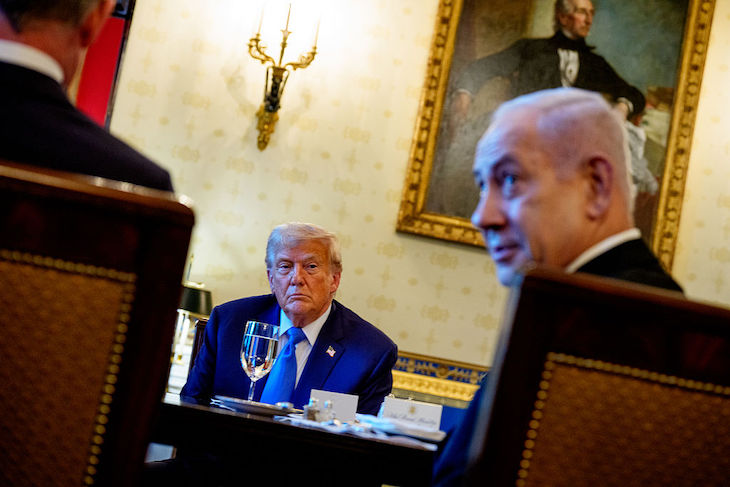As pressure intensifies on Israel to agree to a ceasefire and hostage release deal in Gaza, the country faces a wrenching national dilemma: one that evokes a harrowing moral and strategic reckoning. With approximately 20 live hostages still held by Hamas, Israel must weigh the sacred imperative of bringing its citizens home against the hard-earned gains of a war fought to dismantle a terror regime.
Israel stands alone before a terrible choice: pause now and risk preserving Hamas, or press on and risk the hostages’ lives
The stakes are no longer theoretical. Hamas’s senior leadership has been decimated, its command structure shattered. Israeli forces now control more than sixty per cent of the Gaza Strip. In the south, traditional Palestinian clans – long resentful of Hamas’s iron grip – are increasingly asserting themselves. Militarily and territorially, Hamas is no longer what it was on October 7. But it clings to one final bargaining chip: the hostages.
Israeli prime minister Benjamin Netanyahu just left Washington having held talks with US president Donald Trump. The meeting was more than symbolic. Trump, having recently ordered a bold and effective US strike on Iran’s nuclear infrastructure, has reasserted himself as a dominant figure in global security. He sees the Gaza ceasefire and hostage release both as a powerful photo op and as a defining moment to cement his role as the indispensable peace broker of the Middle East.
For Netanyahu, the stakes are existential. His coalition is fraying, with hardliners seeking total military victory and hostage families demanding a deal. Mass protests have resumed. International pressure is mounting. And yet, he arrived in Washington with strategic leverage: Hamas’s infrastructure is degraded, and Israel may be close to achieving its primary objective: breaking the cycle of terror from Gaza.
And still, the hostages. Roughly twenty Israelis remain captive in Gaza, and at the centre of national consciousness. Their faces are not symbols – they are family. Their absence is a national trauma.
The question is as painful as it is unavoidable: Should Israel pause now to rescue the remaining hostages, knowing it may also save Hamas from collapse? Or press forward and risk their lives to finish dismantling a terrorist regime?
Layered into this decision is a shifting reality on the ground. As the IDF (Israel Defense Forces) advances, power vacuums are emerging. Local clans and civilian networks are jostling to fill the void. A premature ceasefire could allow Hamas to reassert control and crush these alternative authorities. But continued fighting prolongs suffering and invites regional risk.
The IDF is asked to weigh battlefield gains against human lives. Netanyahu must navigate between coalition politics and national ethos. The Israeli public is torn between grief and fear; fear of leaving the job undone.
Trump’s pressure adds weight. His recent strike on Iran has shifted regional perceptions. He wants a deal – and the image of delivering one. But beneath the optics is a deeper ambition: to be the man who reorders the Middle East. The risk is that a ceasefire rushed for optics could leave Hamas wounded but intact – and send a signal that hostage-taking works.
At the same time, Israel cannot ignore the moral imperative to bring its people home. That is not sentimentality – it is national identity. It is the bond between citizen and state, forged through war and loss.
The international community, as ever, calls for restraint but offers no real plan. Regional mediators like Egypt and Qatar lack leverage. European powers call for peace, but do not define their terms. Only the US can shape the outcome – but the question is whether it seeks to end the war, or merely to pause it.
For Netanyahu, a deeper question emerges: how will he square his continued public commitment to dismantle Hamas with the political, diplomatic, and moral pressure to strike a deal? Can he satisfy a US president eager for a defining foreign policy win, appease a domestic public split between rescue and revenge, and hold together a coalition that is showing visible signs of strain? Or is this the moment when the impossible contradictions collapse in on themselves?
Israel stands alone before a terrible choice: pause now and risk preserving Hamas, or press on and risk the hostages’ lives. There is no painless answer. No outcome without consequence.
This is Israel’s Sophie’s Choice – a moment where morality and security collide. The world must stop pretending it’s a simple one.







Comments